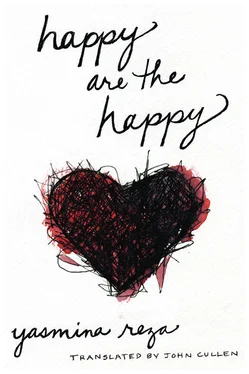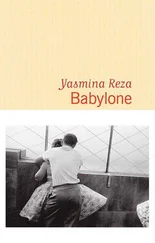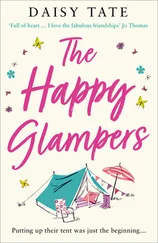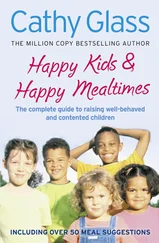Yasmina Reza
Happy Are the Happy
Felices los amados y los amantes
y los que pueden prescindir del amor.
Felices los felices.
Happy are those who are beloved and those who love and those who can do without love.
Happy are the happy.
— JORGE LUIS BORGES
We were at the supermarket, shopping for the weekend. At some point she said, you go stand in the cheese line while I get the rest of the groceries. When I came back, the shopping cart was half filled with boxes of cereal and bags of cookies and packets of powdered food and other desserts. I said, what’s all this for? — What do you mean, what’s all this for? I said, what’s the point of buying all this? — You have children, Robert. They like Chocolate Cruesli, they like Napolitains, they adore Kinder Bueno bars. She displayed the various packages. It’s ridiculous to gorge those kids on sugar and fat, I said. This cart is ridiculous. She said, what kind of cheese did you buy? — A Crottin de Chavignol and a Morbier. And no Gruyère? she cried out. — I forgot and I’m not going back, the line’s too long. — If there’s one kind of cheese you have to buy, you know very well it’s Gruyère, who eats Morbier in our house? Who? I do, I said. — Since when do you eat Morbier? Who wants to eat Morbier? Odile, stop it, I said. — Who likes this Morbier crap? Implicit meaning: besides your mother , my mother had recently found a nut, a metal nut, in a chunk of Morbier. I said, Odile, you’re shouting. She gave the cart a jerk and threw three Milka chocolate bars into it. I picked them up and replaced them on the shelf. She flung the bars back into the cart even faster than before. I said, I’m out of here. She answered, get out, get out, I’m out of here is all you know how to say, it’s your sole response. As soon as you run out of arguments, you say I’m out of here, you immediately resort to this grotesque threat. It’s true, I admit it, I often say I’m out of here, I’m aware I say it, but I don’t see how I can not say it when it’s the only thing I want to say, when I see no way out other than immediate withdrawal, but I also realize, yes, that I put it in the form of an ultimatum. Well, you’re finished shopping, I say to Odile, propelling the shopping cart forward. Or do we have some more stupid shit to buy? — Listen to the way you talk to me! Do you even realize how you talk to me? I say, come on. Come on! Nothing irks me more than these sudden mood shifts, where everything stops, everything freezes. Obviously, I could say I’m sorry. Not just once, I’d have to say it twice, in the right tone. If I said I’m sorry, if I said it twice in the right tone, then the day could restart and almost return to normal, except that I don’t in the least feel like saying those words, nor is there any physiological possibility of my uttering them when she stops short in front of shelves of condiments with that flabbergasted look of outrage and desolation. Come on, Odile, please, I say more gently. I’m cold and I have an article to finish. Apologize, she says. If she said Apologize in her normal voice, I might comply, but she whispers, she gives the word a colorless, atonal inflection I can’t get past. I say, please. I remain calm. Please, I say mildly, and I see myself driving down a highway at top speed, stereo turned all the way up, and I’m listening to a song called “Sodade,” a recent discovery I understand nothing of except for the solitude in the singer’s voice and the word solitude itself, repeated countless times, even though I’m told sodade doesn’t actually mean solitude, but nostalgia, absence, regret, spleen, so many intimate things that can’t be shared, and all of them names for solitude, just as the personal shopping cart is a name for solitude, and so is the oil and vinegar aisle, and so is the man pleading with his wife under the fluorescent lights. I say, I’m sorry. I’m sorry, Odile. Odile’s not necessary in that sentence. Of course not. Odile isn’t nice, I say Odile at the end to indicate my impatience, but I don’t expect her to make an about-face, arms dangling, and head for the frozen foods, that is, for the back of the store, without saying a word, leaving her handbag in the shopping cart. I shout, what are you doing, Odile? I shout, I’ve got only two hours left to write a very important article on the new gold rush! A completely ridiculous declaration. She’s disappeared from sight. People are looking at me. I grab the handle of the cart and make a beeline for the back of the store. I don’t see her (she’s always had a talent for vanishing, even from pleasant situations). I call out, Odile! I go to the beverage section: nobody. Odile! Odile! I’m clearly upsetting the people around me, but I couldn’t care less, I wheel the cart up and down the aisles — I loathe these supermarkets — and suddenly I spot her in the cheese line, which is even longer than it was a little while ago, she’s got herself back in the cheese line! I go up to her and say, Odile, I express myself in a measured tone, Odile, I say, it’s going to be twenty minutes before you get served, let’s leave and buy the Gruyère somewhere else. No response. What’s she doing? She digs around in the shopping cart and pulls out the Morbier. You’re not going to return the Morbier? I ask. — Yes I am. We’ll give it to Maman, I say, trying to lighten things up. My mother recently found a metal nut in a chunk of Morbier. Odile doesn’t smile. She remains stiff and offended, standing there in the penance line. My mother said to the cheesemonger, I’m not the type of woman who makes a fuss, but for the sake of your longevity as a respected dealer in cheese, I must inform you that I found a bolt in a piece of your Morbier. The guy didn’t give a damn, he didn’t even offer to comp the three Rocamadours she was buying. My mother boasts that she paid without flinching, thus proving herself a bigger person than the cheesemonger. I stand close to Odile and say in a low voice, I’m counting to three, Odile. I’m counting to three. You understand? And for some reason, at the moment when I say that, I think about the Hutners, a couple of friends of ours who are curled up together inside a willed state of conjugal well-being. Lately they’ve taken to calling each other “my own” and saying things like “Let’s eat well this evening, my own.” I don’t know why the Hutners cross my mind at the moment when an opposite madness has come over me, but maybe there isn’t really a whole lot of difference between Let’s eat well tonight, my own , and I’m counting to three, Odile , in both cases the effort to be a couple causes a kind of constriction of the being, I mean there’s no more natural harmony in Let’s eat well, my own , no, not at all, and no less disaster either, except that my I’m counting to three causes a shiver to pass over Odile’s face, a wrinkling of the mouth, the infinitesimal beginnings of a smile, while I must absolutely refrain from beginning to smile myself, of course, as long as I don’t receive an unequivocal green light, even though I really feel like smiling, but instead I’ve got to act as if I haven’t noticed a thing, and so I decide to count, I say one , I whisper the word distinctly, the woman right behind Odile has a ringside view, Odile pushes a bit of discarded packaging with the tip of her shoe, the line’s getting longer and not moving at all, it’s time for me to say two, I say two , openly, generously, the woman behind Odile practically glues herself to us, she’s wearing a hat, a kind of overturned bucket made of soft felt, I can’t stand women who wear that sort of hat, a hat like that’s a very bad sign, I put something in my look intended to make the woman back off a yard or so, but nothing happens, she considers me curiously, she sizes me up, does she smell disgustingly bad? Women who dress in layers often give off a bad odor, or could it be the proximity of spoiled dairy products? My cell phone vibrates in my inside jacket pocket.
Читать дальше












